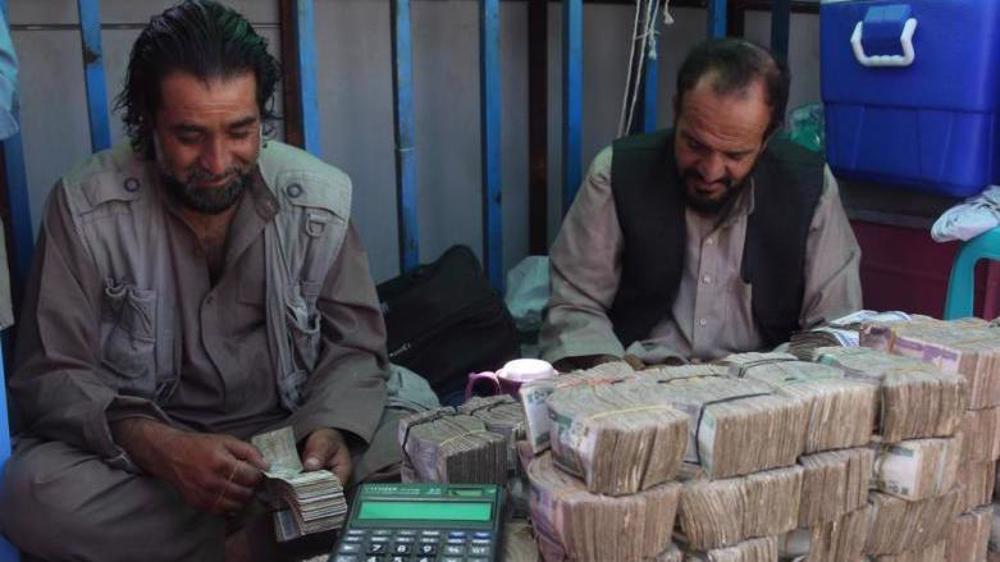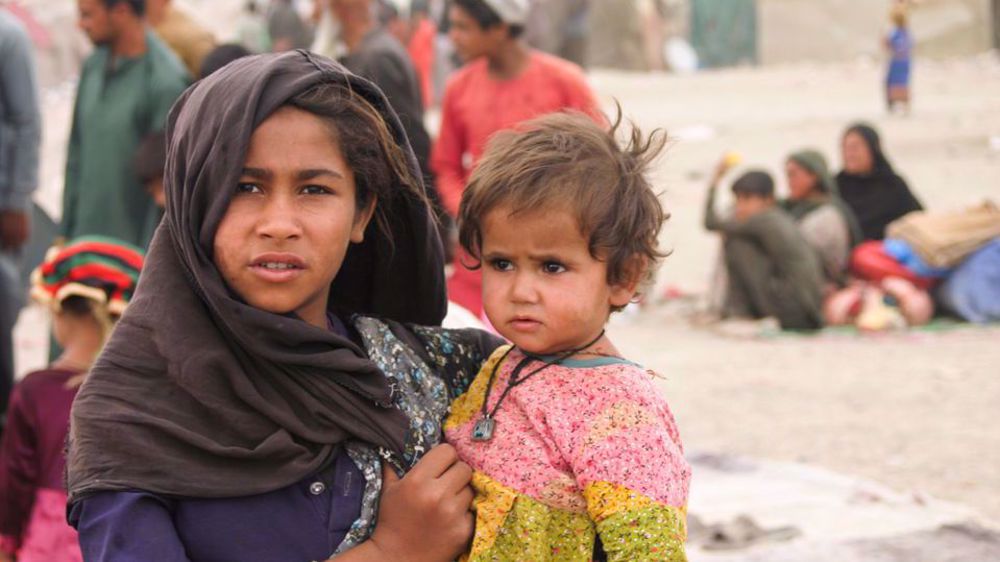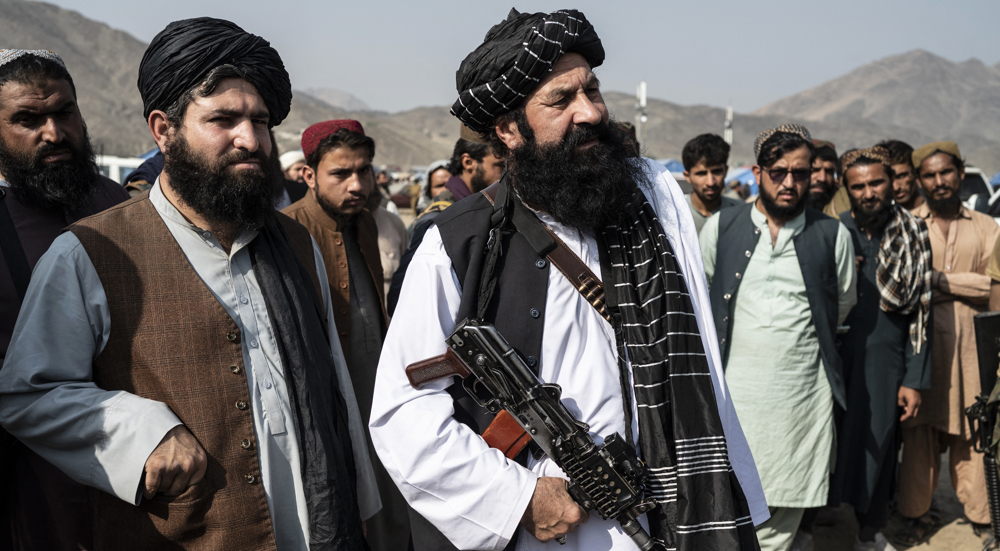US sets up Swiss Fund for frozen Afghan assets, Taliban reject plan
The United States says it is setting up a Geneva-based fund to manage billions of dollars in frozen Afghan reserves, but the interim Taliban government in Kabul wants the reserves directly transferred to the Afghan central bank.
On Wednesday, the US Department of State said in a statement that they will transfer $3.5 billion in frozen funds from Afghanistan’s central bank to the newly-established Afghan Fund based in Geneva, Switzerland, to purportedly use for the country’s people as hunger grips every province there.
The Taliban government will not be a part of the new fund, which will maintain its account with the Bank for International Settlements in Switzerland.
The US Treasury Department said the fund will “protect, preserve and make targeted disbursements” of the Afghan money.
The US Deputy Treasury Secretary Wally Ademeyo said in a letter that sending the money to Afghanistan’s central bank would put the funds at risk of not being used for the benefit of the Afghan people.
A report in CNN on Wednesday cited officials as saying that transferring these funds to the Afghan central bank will depend on two key factors: "responsible management of the bank and assurances that the funds will not be diverted to terrorists or criminals".
The Afghan central bank will need to “demonstrate its independence from political influence and interference", the report stated.
Taliban government, however, has rejected the Biden administration's planned transfer of frozen Afghan assets to a Switzerland-based bank, asking the US to send the money directly to the Afghan central bank.
“We don't agree with the transfer of money to the account indicated, but [we wish for it] to be transferred to Da Afghanistan Bank (DAB),” a Taliban official with the country’s central bank was quoted as saying on Wednesday by TRT World.
The official added that they are open to a third-party monitoring system as demanded by the US government.
The administration of US President Joe Biden has frozen over $7 billion in Afghan assets since the US-led NATO coalition's withdrawal from the country and the takeover of Kabul by the Taliban in August last year.
One year on, the Taliban government in Kabul continues to struggle with the rapidly worsening humanitarian situation in the country amid crippling US sanctions and a shortage of funds.
Millions of Afghans are without work today, the banking system is virtually dysfunctional, medical facilities are lying in shambles and the worst humanitarian crisis in modern history is unfolding. Almost entire Afghan population is living below the poverty line today, according to the United Nations.
Many Afghans have expressed anger over the Biden administration's decision to freeze billions of dollars of Afghan funds. Worse, the US sanctions have devastated the banking system and blocked global humanitarian organizations from delivering aid to poor Afghans.
In February, Washington said half of the assets would be made available to victims of the September 11, 2001 attacks, which prompted anger and outrage across the world amid worsening humanitarian crisis in Afghanistan.
Taliban later held talks with the US on a way forward, with momentum building after Afghanistan suffered a devastating earthquake in June.
Also in February, Biden issued an executive order that called for banks to provide $3.5 billion of the frozen money to a trust fund for distribution through what he called humanitarian groups for Afghan relief and basic needs.
US forces occupied Afghanistan for about two decades on the pretext of fighting the Taliban. But when the forces chaotically left Afghanistan in August 2021, the Taliban stormed the capital Kabul, which had been weakened by continued foreign occupation.
The country has since been in turmoil. The US and its allies have largely suspended their financial assistance to Afghanistan, whose economy is on the verge of collapse. Inflation in the war-ravaged country is soaring, and millions of Afghans are on the brink of starvation.
Iran: US airstrikes on Yemen war crimes, violation of international law
Yemeni armed forces down F-18 fighter jet, repel US-UK attack: Spokesman
Iran warns against US-Israeli plot to weaken Muslims, dominate region
VIDEO | Public uproar in US against Israeli regime
‘Ghost town’: 70% of Jabalia buildings destroyed by Israel
Mother’s Day: Sareh Javanmardi’s inspiring journey as Paralympic champion and mother
Russia downs over 40 Ukrainian drones as Putin vows 'destruction' on Kiev
VIDEO | Yemen: A bone in Israeli neck












 This makes it easy to access the Press TV website
This makes it easy to access the Press TV website